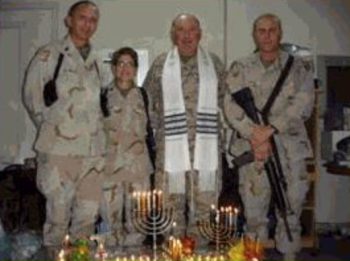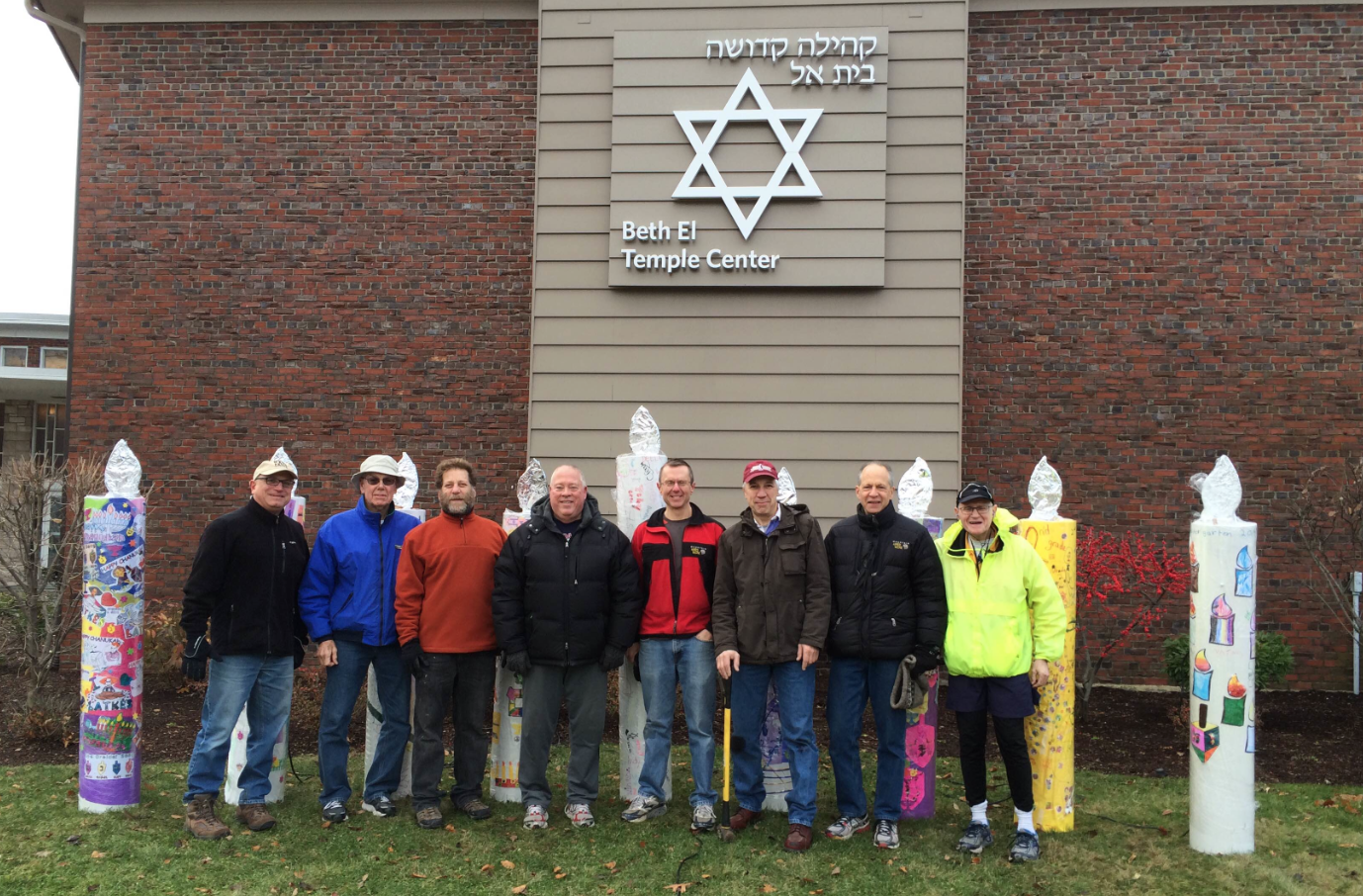This article is by Len Abram
American service men and women in Africa (AFRICOM) are not only fighting terrorism on the continent, not only training local police and militias in equipment and tactics, and not only protecting American interests and facilities, but they are also dealing with the scourge of Ebola. This last mission means building hospitals and treatment centers and providing doctors and nurses to help the ill and prevent more infection.
The responsibilities of the American military clearly go beyond bearing arms, to containing a local epidemic and giving victims a chance to survive. As in the battlefield, serving in a zone of contagion has its own dangers. As with jihadist terrorism, the American military is fighting the threat abroad, before it can threaten more Americans here.
The Jewish military men and women of AFRICOM are far from home, but not necessarily far from their traditions, such as the holiday of Hanukkah. Each year, the Beth El Temple Center Brotherhood and congregation have sent Hanukkah celebration kits to Jews serving abroad, this year to Africa, including Djibouti, at the strategic Horn of Africa. The Brotherhood joins other organizations (one is called “Kosher Troops”; another, “Jews in Green”) shipping Hanukkah candles and special candle holders (a menorah or hanukkiah) to Jews serving in the military overseas.

The eight-day holiday of Hanukkah, the Festival of Lights, begins December 16 at sundown. With the lighting of candles, the holiday celebrates the victory of Jewish forces, 2200 years ago, over Greek-Syrian armies and a king determined to eradicate Jewish culture. The Seleucids inherited the empire of Alexander the Great, these Greek-Syrians tried to Hellenize the Jewish people in what is now present day Israel, even forbidding under penalty of death, the teaching of Jewish texts and traditions.
Mattathias and his five sons from the village of Mod’in, still on the map, started a revolt against the formidable Seleucid armies, professionals and mercenaries, up against farmers, artisans and shepherds, with no standing army, no armor and few weapons, beyond their bows. It was one of the most successful guerilla wars in history. Against a superior force, the Jews harassed, ambushed, and whittled away at the professionals, who at one point brought elephants to battle.
Using terrain to advantage, controlling the heights of the Judean hills through the armies had to march, proved critical to the victory, although many died, including Mattathias and most of his sons. When Jewish forces took the Temple in Jerusalem, they had to clean and rededicate the holy site after the Seleucids had defiled it. Legend says that only one day of olive oil was left untainted. That small amount somehow burned for eight days; hence, the eight day holiday.
The war won the Jews over a hundred years of autonomy until the Roman Empire intervened (there were two unsuccessful Jewish revolts against the Romans). Of the five Maccabean brothers, Judas was the most famous, celebrated in song and legend. Jews sponsor athletic competitions in Israel, Europe and America, called Maccabean in their honor.
The Hanukkah celebration kits from the Brotherhood include enough candles for the eight days; a candle holder or hanukkiah; a dreidl to play games of chance (by legend, to deceive the Seleucids while Jews were studying their Bible); chocolate coins to wager; bubble gum from Israel; a camouflage kippah or head covering; greeting cards from the Temple fourth graders; a CD of Jewish music; and a letter from the congregation.
Here in Belmont, Beth El Temple Center will have a candle lighting ceremony outside of the building on Concord Ave at 6 p.m., following which the Brotherhood is sponsoring a Hanukkah party for parents and children, with music led by Rabbi Jonathan Kraus. Foods fried in oil, such as potato pancakes or latkes, will be served, a reminder of a miracle during an ancient fight for freedom.








Leave a Review or Comment